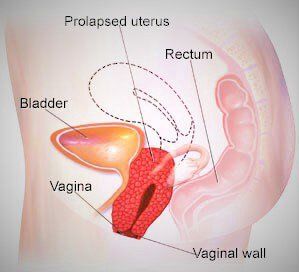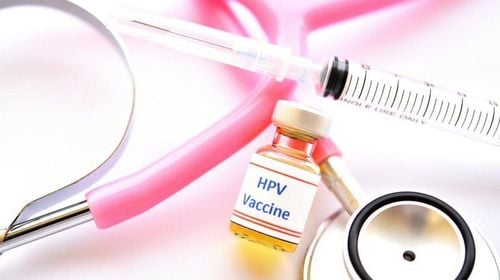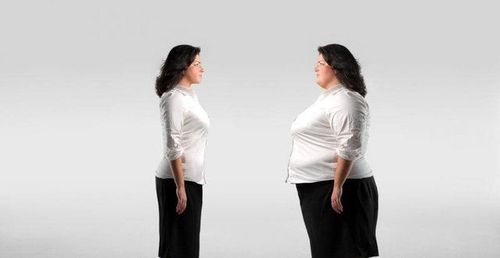This is an automatically translated article.
Choosing nutritious foods to support breast milk production is extremely important, so is a liquid diet suitable for new born? The following article will help learn more about this issue.
1. How does diet affect breast milk?
For postpartum women, breastfeeding can reduce the risk of developing a number of health problems later in life, including heart disease and diabetes. Besides, breast milk can also reduce stress and help you feel more connected to your new baby.
It is scientifically proven that breast milk is full of nutrients and protective compounds necessary for a baby's development. Choosing nutrient-dense, nutrient-dense foods to support breast milk production is important. Plus, choosing healthy, nutrient-rich foods after giving birth can help you feel better both mentally and physically.
You may be wondering why it's so important to follow a healthy, nutrient-rich diet for a new baby to breastfeed, but it's more than just promoting overall health. your baby, a healthy diet is essential to ensure that your baby gets all the nutrients he needs to grow.
With the exception of vitamin D, breast milk contains everything a baby needs for proper development during the first 6 months. If your diet doesn't provide enough nutrients, it can affect both the quality of your breast milk and your own health. Research shows that breast milk is made up of 87% water, 3.8% fat, 1.0% protein, and 7% carbohydrates and provides 60 to 75 kcal/100ml.
Unlike formula milk, the calorie content and composition of breast milk vary. Breast milk changes with each feeding and throughout breastfeeding to meet your baby's needs.
When breastfeeding begins, breast milk contains more water and often quenches a baby's thirst. The milk that comes after is the thicker milk, which is higher in fat and nutrients. This type of milk can contain 2 to 3 times more fat than milk at the beginning of breastfeeding. So, to get the most nutritious milk, it's important to let your baby finish one breast before switching to the other.
When breastfeeding is the time when you feel the body most hungry because the production of breast milk requires an increase in the overall amount, as well as a higher content of nutrients. In fact. , it is estimated that the energy requirement of lactating women increases to about 500 calories per day. The need for specific nutrients, including protein, vitamin D, vitamin A, vitamin E, vitamin C, B12, selenium, and zinc also increases. This is why eating a variety of nutrient-dense foods is so important for you and your baby's health.

Here are some nutritious food options for breastfeeding moms to prioritize:
Fish and seafood: Salmon, seaweed, shellfish, sardines Meat and poultry: Chicken, beef, lamb, pork, offal (such as liver) Fruits and vegetables: Berries, tomatoes, bell peppers, cabbage, kale, garlic, broccoli Nuts: Almonds, walnuts, chia seeds, hemp seeds, flaxseeds Healthy fats: Avocado, olive oil, coconut, eggs, high-fat yogurt Fiber-rich starches: Potatoes, pumpkins, sweet potatoes, beans, lentils, oats, quinoa, buckwheat Other foods: Tofu, dark chocolate, kimchi, sauerkraut And while it's perfectly healthy to indulge in your favorite foods sometimes, it's good. Ideally, you should reduce your intake of processed foods such as fast foods and sugary breakfast cereals as much as possible. Instead, choose more nutritious options. For example, if you're used to starting your day with a bowl of breakfast cereal, try swapping it out for a bowl of oats topped with berries, unsweetened coconut, and some nut butter for an energy boost. Supplement and healthy .
Nutrients in breast milk can be classified into 2 groups, depending on how well they are secreted into your milk. If you lack any of the group 1 nutrients, they won't pass into breast milk as easily. So supplementing with these nutrients can help increase their concentrations in breast milk and, as a result, promote your baby's health.
On the other hand, the concentration of Group 2 nutrients in breast milk is independent of the amount of nutrients the mother absorbs, so supplementation will not increase the concentration of nutrients in breast milk. Even so, these can still improve a mother's health by replenishing her nutrient stores.
The key point is that getting enough Group 1 nutrients is important for both you and your baby, while getting enough Group 2 nutrients is mostly just as important to you.
1.1 Group 1
Here are group 1 nutrients and foods rich in group 1 nutrients.
Vitamin B1 (Thiamin): Fish, pork, seeds, nuts, beans Vitamin B2 (Riboflavin): Cheese, almonds, nuts, red meat, oily fish, eggs Vitamin B6: Chickpeas, nuts, fish, poultry, potatoes, bananas, dried fruit Vitamin B12: Shellfish, liver, yogurt, oily fish, nutritional yeast, eggs, crabs, shrimp Choline: Eggs, beef liver, chicken liver, fish, peanuts Vitamin A: Sweet potatoes, carrots, dark green leafy vegetables, organ meats, Eggs Vitamin D: Cod Liver Oil, Oily Fish, Certain Mushrooms, Selenium Fortified Foods: Brazil nuts, Seafood, Turkey, Whole Wheat, Iodine Seeds: Dried Seaweed, Cod, Milk , iodized salt
1.2 Group 2
Here are group 2 nutrients and some common food sources of group 2 nutrients:
Folate: Beans, lentils, green leafy vegetables, asparagus, avocados Calcium: Milk, yogurt, cheese, green vegetables, legumes Iron: Red meat, pork, poultry, seafood, beans, green vegetables, dried fruit Copper: Shellfish, whole grains, assorted nuts, beans, organ meats, potatoes Zinc: Oysters, red meat, poultry, beans, nuts, milk Concentrations of group 2 nutrients in breast milk are relatively unaffected by intake or the amount stored in the mother's body. So if your intake is low, your body will draw these nutrients from your own bone and tissue stores to secrete into breast milk.
Your baby will always get the right amount, but your body's reserves will become depleted if you don't get enough from your diet. To avoid becoming deficient, these nutrients must come from your diet or supplements.
In addition to feeling hungrier than usual while breastfeeding, you may also feel more thirsty. When your baby latches on to your breast, your oxytocin levels increase. This causes your milk to start flowing. This also stimulates thirst and helps ensure that you stay hydrated while breastfeeding.
It is important to note that your hydration needs will vary depending on factors such as activity level and diet. There is no one-size-fits-all rule of thumb when it comes to how much fluid you need while breastfeeding.
As a general rule, you should always drink when thirsty and until your thirst is gone. But if you feel very tired, faint, or your milk supply is decreasing, you may need to drink more water. The best way to tell if you're drinking enough water is the color and smell of your urine. If it is dark yellow and has a strong smell, it is a sign that you are dehydrated and need to drink more water.
2. Is liquid diet suitable for new born?
Whether liquid diet is suitable for new born is entirely up to you. Liquid diet means you drink a glass of water, a glass of fruit instead of lunch or dinner. And you're thinking of replacing a meal or 2 with liquids.
If you intend to lose weight after giving birth, you need to know that using any drink in place of meals is not a guaranteed and long-term way to lose weight, because it will not provide nutrients nutrients or calories you need to stay healthy and establish good eating habits. Meal replacement snacks, on the other hand, such as a snack or complement to a quick meal, are calorie-controlled when you don't have the time or energy to prepare food. Research shows that two meal replacements a day are actually effective for people who are overweight or obese (but aren't breastfeeding), helping to lower blood sugar, blood pressure, and insulin levels while losing weight. .
So, if you are overweight, not breastfeeding and are looking for an easy and convenient diet menu after giving birth, the liquid diet is quite suitable for you. Just make sure to snack on some extra fruits and vegetables for vitamins and fiber.
However, if you are breastfeeding, a liquid diet is only suitable when you take it no more than once a day. Because if you choose a regular liquid diet, your body will not be provided with enough calories and nutrients necessary for your health as well as the amount of milk for your baby.
If you want to lose weight after giving birth, you need to exercise. You should try to keep up with some activity every day, even if it's just a 15-minute walk. Exercise helps build muscle and keeps you from losing muscle while dieting. Muscle helps you lose weight because it burns more calories than fat - even when you're resting!
Exercise also helps reduce stress.
If you are feeling depressed about your postpartum weight now, keep these things in mind:
You will gradually lose the amount of weight you carried during your pregnancy You will need to exercise If you lose weight too quickly, agents that can be stored in your body's fat (like PCBs and mercury) are released more quickly into your bloodstream and breast milk. Most women lose about 2kg after they stop breastfeeding. While you can return to your pre-pregnancy weight, you may never get back to your pre-pregnancy shape. Pregnancy often causes permanent changes in body shape.

3. Foods and drinks that should not be used by newborns
Theo các chuyên gia, trừ những loại thực phẩm khiến bạn bị dị ứng, còn lại chúng đều an toàn đối với những người mới sinh. Mặc dù một số hương bị từ thực phẩm, gia vị hoặc đồ uống có thể làm thay đổi mùi vị của sữa mẹ. Nghiên cứu cho thấy điều này không chắc sẽ ảnh hưởng đến thời gian bú của trẻ hoặc khiến trẻ quấy khóc.
Một quan niệm sai lầm phổ biến khác là các loại thực phẩm “có khí” như súp lơ và bắp cải cũng sẽ gây ra đầy hơi cho con bạn. Dù trên thực tế những thực phẩm này có thể làm bạn đầy hơi, nhưng các hợp chất thúc đẩy khí không chuyển vào sữa mẹ.
Tóm lại, hầu hết các loại thực phẩm và đồ uống đều an toàn trong giai đoạn sau sinh, nhưng có một số loại nên hạn chế hoặc tránh nếu bạn cho con bú sữa mẹ.
Caffeine Khoảng 1% lượng caffeine mà bạn tiêu thụ được chuyển giao sang sữa mẹ, và nghiên cứu cho biết phải mất nhiều thời gian hơn để cơ thể trẻ chuyển hóa caffeine. Uống đồ uống có chứa caffeine như cà phê không được chứng minh là gây hại, nhưng chúng có thể ảnh hưởng đến giấc ngủ của trẻ.
Do đó, phụ nữ đang cho con bú nên hạn chế uống cà phê khoảng 2 đến 3 tách mỗi ngày.
Rượu Rượu cũng có thể xâm nhập vào sữa mẹ. Nồng độ tương tự như lượng được tìm thấy trong máu của người mẹ. Tuy nhiên, trẻ sơ sinh chuyển hóa rượu chỉ bằng một nửa so với người lớn. Cho con bú sau khi uống rượu chỉ 1 đến 2 cữ có thể làm giảm lượng sữa mẹ lên đến 23%, đồng thời khiến mẹ dễ bị kích động và ngủ kém.
Vì uống rượu quá gần thời điểm cho con bú có thể ảnh hưởng tiêu cực đến sức khỏe của con bạn, APP cho biết nên hạn chế uống rượu trong thời gian cho con bú. APP khuyến nghị không nên dùng quá 0,5 gam rượu trên mỗi kg trọng lượng cơ thể.
Mặc dù bạn có thể thưởng thức đồ uống có cồn khi cho con bú, nhưng bạn nên cho con bú sau khi uống ít nhất 2 giờ.
Sữa bò Tuy không phổ biến nhưng một số trẻ có thể bị dị ứng với sữa bò. Và nếu con bạn bị dị ứng sữa bò, điều quan trọng là bạn phải loại trừ tất cả các sản phẩm từ sữa khỏi chế độ ăn uống của mình.
Khoảng 1% trẻ sơ sinh bú sữa mẹ bị dị ứng với protein sữa bò từ chế độ ăn của mẹ với các biểu hiện như phát ban, chàm, tiêu chảy, phân có máu, nôn mửa hoặc đau bụng ở trẻ.Các chuyên gia y tế có thể cho bạn lời khuyên về thời gian loại trừ sữa khỏi chế độ ăn uống của bạn và thời điểm an toàn để sử dụng lại sữa.
Bạn có thể muốn giảm cân nhanh chóng sau khi sinh, nhưng giảm cân cần có thời gian và điều quan trọng là phải quan tâm tới cơ thể của chính mình trong quá trình chuyển đổi này. Với nhiều thay đổi nội tiết tố diễn ra trong thời kỳ cho con bú và nhu cầu calo để tạo sữa mẹ, bạn có thể cảm thấy thèm ăn hơn khi cho con bú.
Hạn chế quá nhiều calo, đặc biệt là trong vài tháng đầu cho con bú có thể làm giảm lượng sữa và mức năng lượng mà cơ thể cần. Tuy nhiên, trên thực tế, việc cho con bú sữa mẹ cũng hỗ trợ thúc đẩy quá trình bạn giảm cân, đặc biệt là khi bạn tiếp tục cho con bú trong 6 tháng hoặc lâu hơn.
Tất cả phụ nữ sau sinh, nếu họ lựa chọn cho con bú bằng sữa mẹ, điều quan trọng là phải tiêu thụ đủ lượng calo mà cơ thể cần, bất kể cân nặng là bao nhiêu. Nhưng nếu bạn thiếu cân, có khả năng bạn sẽ nhạy cảm hơn với việc hạn chế calo. Vì lý do này, đối với những phụ nữ có trọng lượng cơ thể thấp hơn phải tiêu thụ nhiều calo hơn để tránh giảm nguồn sữa.
Nói chung, hãy nhớ rằng giảm cân sau khi sinh là một cuộc chạy marathon, không phải chạy nước rút. Bạn phải mất nhiều tháng để tăng cân cho một thai kỳ khỏe mạnh cho cả bạn và con bạn, và bạn có thể mất vài tháng để giảm cân - và điều đó không sao cả. Điều quan trọng nhất cần nhớ khi cố gắng giảm cân sau sinh bằng cách ăn kiêng hạn chế sẽ không tốt cho sức khỏe tổng thể và không có tác dụng giảm cân lâu dài. Tuân theo một chế độ ăn uống bổ dưỡng, thường xuyên luyện tập thể dục vào thói quen hàng ngày và ngủ đủ giấc là những cách tốt nhất để thúc đẩy giảm cân lành mạnh.
Đối với những người sau sinh, việc nuôi con bằng sữa mẹ là một công việc khó khăn! Cơ thể bạn cần nhiều calo và chất dinh dưỡng hơn để giữ cho bạn và trẻ được nuôi dưỡng và khỏe mạnh. Nếu bạn không ăn đủ calo hoặc thực phẩm giàu chất dinh dưỡng, điều này có thể ảnh hưởng tiêu cực đến chất lượng sữa mẹ của bạn. Nó cũng có thể gây bất lợi cho sức khỏe của chính bạn.
Điều quan trọng hơn bao giờ hết là phụ nữ sau sinh cần được bổ sung các loại thực phẩm lành mạnh, bổ dưỡng và hạn chế thực phẩm chế biến sẵn hay áp dụng chế độ ăn lỏng thường xuyên. Tránh tiêu thụ quá nhiều caffein và rượu, đồng thời tuân thủ lượng tiêu thụ được khuyến nghị để giữ cho trẻ được khỏe mạnh.
Trẻ sơ sinh nhìn chung dễ gặp bệnh về đường hô hấp, các bệnh lý nhiễm trùng hô hấp và nhiễm trùng đường tiêu hóa nếu bé ăn dặm sớm hoặc việc lưu trữ và pha chế sữa không đảm bảo. Để bảo vệ sức khỏe của trẻ, cha mẹ nên thực hiện tốt việc cho bé bú mẹ hoàn toàn trong 6 tháng đầu (nếu được) và tiêm vắc-xin đúng lịch. Ngay khi thấy trẻ có các triệu chứng như biếng ăn, mệt mỏi, quấy khóc thì cần đứa trẻ đến bệnh viện để được các bác sĩ chuyên khoa tư vấn theo dõi và điều trị. Khoa nhi tại hệ thống Bệnh viện Đa khoa Quốc tế Vinmec là địa chỉ tiếp nhận và thăm khám các bệnh lý mà trẻ sơ sinh cũng như trẻ nhỏ dễ mắc phải: sốt virus, sốt vi khuẩn, viêm tai giữa, viêm phổi ở trẻ,... Với hệ thống cơ sở vật chất, trang thiết bị y tế hiện đại, không gian vô trùng, giảm thiểu tối đa tác động cũng như nguy cơ lây lan bệnh, Vinmec sẽ mang lại sự hài lòng cho Quý khách hàng và được các chuyên gia trong ngành đánh giá cao với:
Quy tụ đội ngũ y bác sĩ về Nhi khoa: gồm các chuyên gia có trình độ chuyên môn cao (giáo sư, phó giáo sư, tiến sĩ, thạc sĩ), giàu kinh nghiệm, từng công tác tại các bệnh viện lớn như Bạch Mai, 108.. Các bác sĩ đều được đào tạo bài bản, chuyên nghiệp, có tâm - tầm, am hiểu tâm lý trẻ. Bên cạnh các bác sĩ chuyên khoa Nhi trong nước, khoa Nhi còn có sự tham gia của các chuyên gia nước ngoài (Nhật Bản, Singapore, Úc, Mỹ) luôn tiên phong áp dụng những phác đồ điều trị mới nhất và hiệu quả nhất. Dịch vụ toàn diện: Trong lĩnh vực Nhi khoa, Vinmec cung cấp chuỗi các dịch vụ khám - chữa bệnh liên hoàn từ Sơ sinh đến Nhi và Vaccine,... theo tiêu chuẩn Quốc tế để cùng bố mẹ chăm sóc sức khỏe bé từ khi lọt lòng đến tuổi trưởng thành Kỹ thuật chuyên sâu: Vinmec đã triển khai thành công nhiều kỹ thuật chuyên sâu giúp việc điều trị các căn bệnh khó trong Nhi khoa hiệu quả hơn: phẫu thuật thần kinh - sọ, ghép tế bào gốc tạo máu trong điều trị ung thư. Chăm sóc chuyên nghiệp: Ngoài việc thấu hiểu tâm lý trẻ, Vinmec còn đặc biệt quan tâm đến không gian vui chơi của các bé, giúp các bé vui chơi thoải mái và làm quen với môi trường của bệnh viện, hợp tác điều trị, nâng cao hiệu quả khám chữa bệnh.
Please dial HOTLINE for more information or register for an appointment HERE. Download MyVinmec app to make appointments faster and to manage your bookings easily.
Reference sources: babycenter.com, healthline.com













